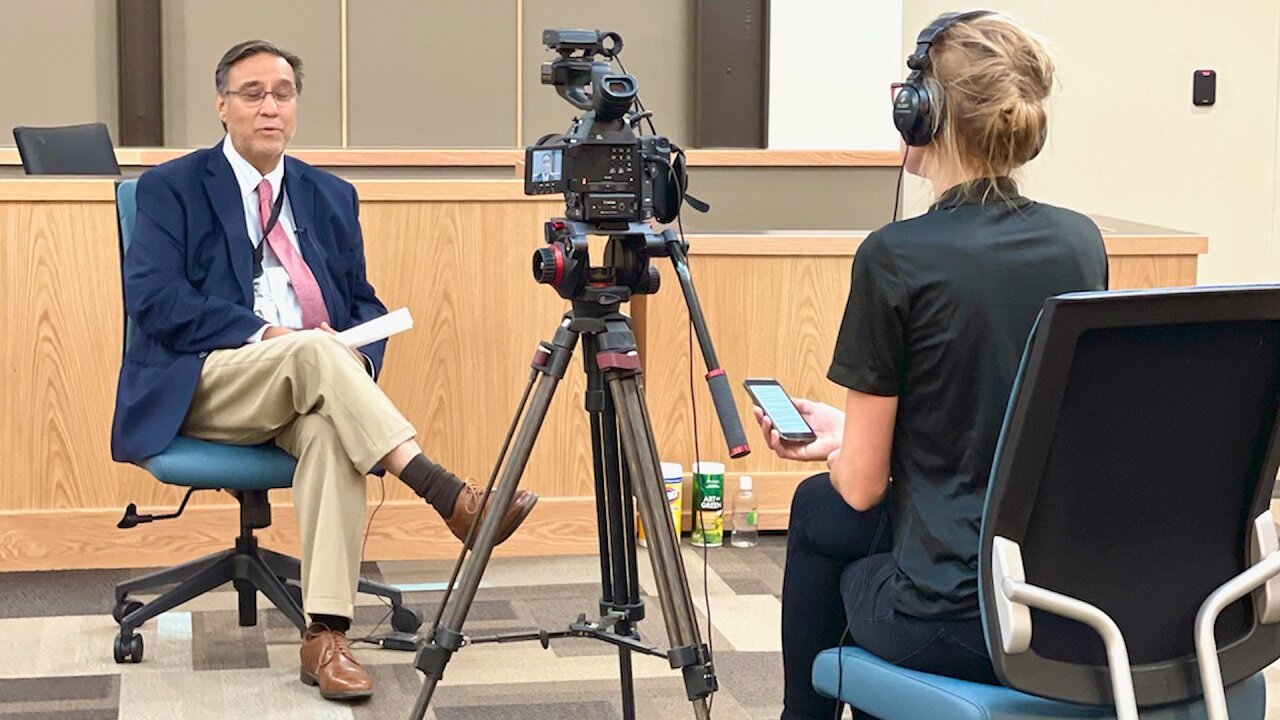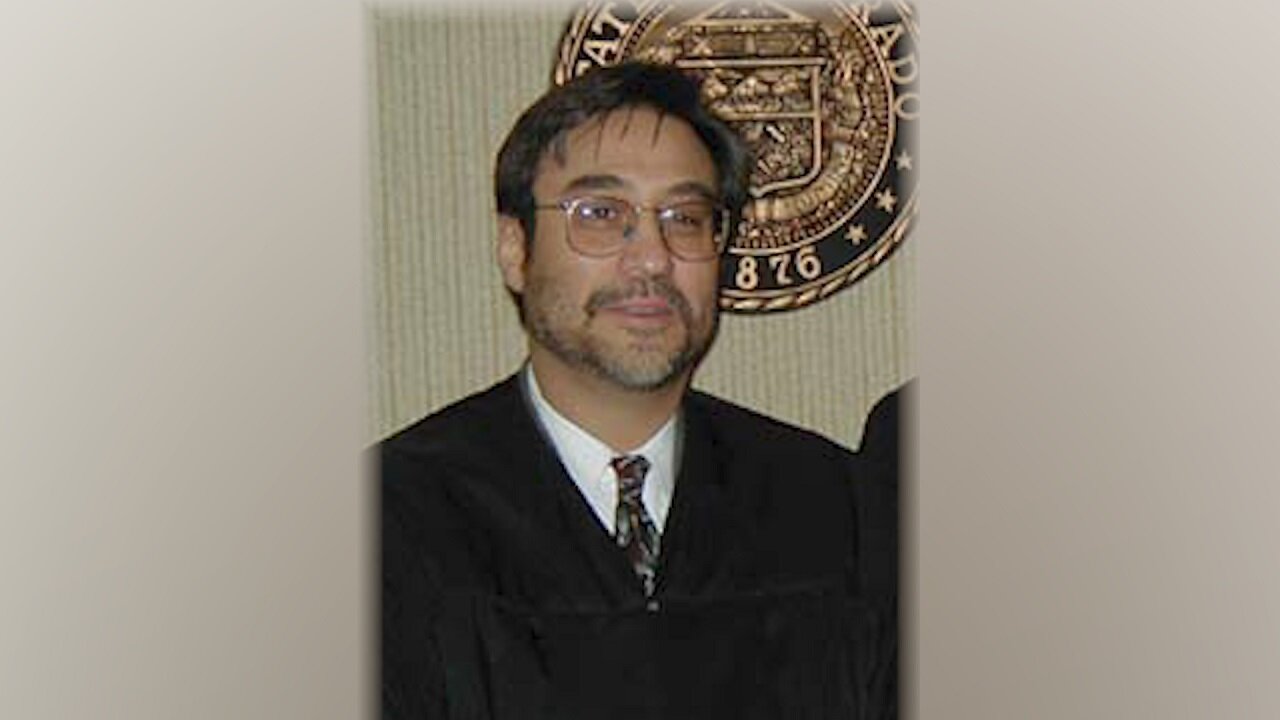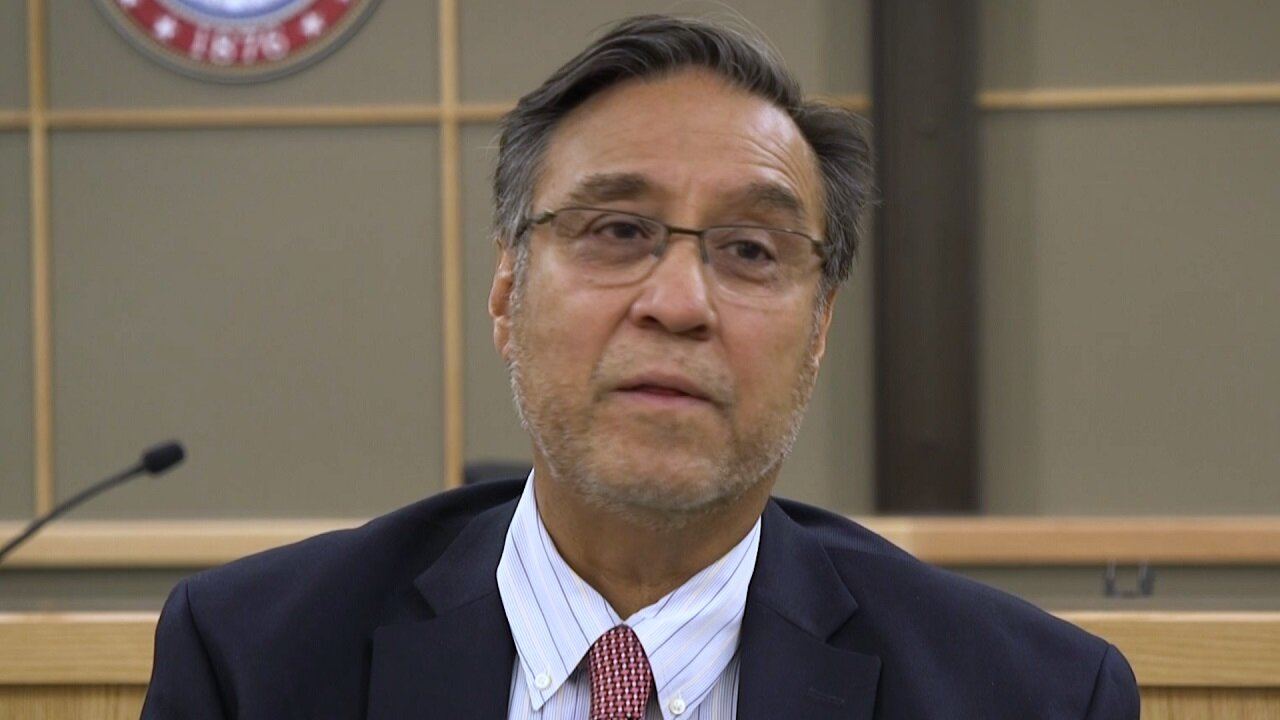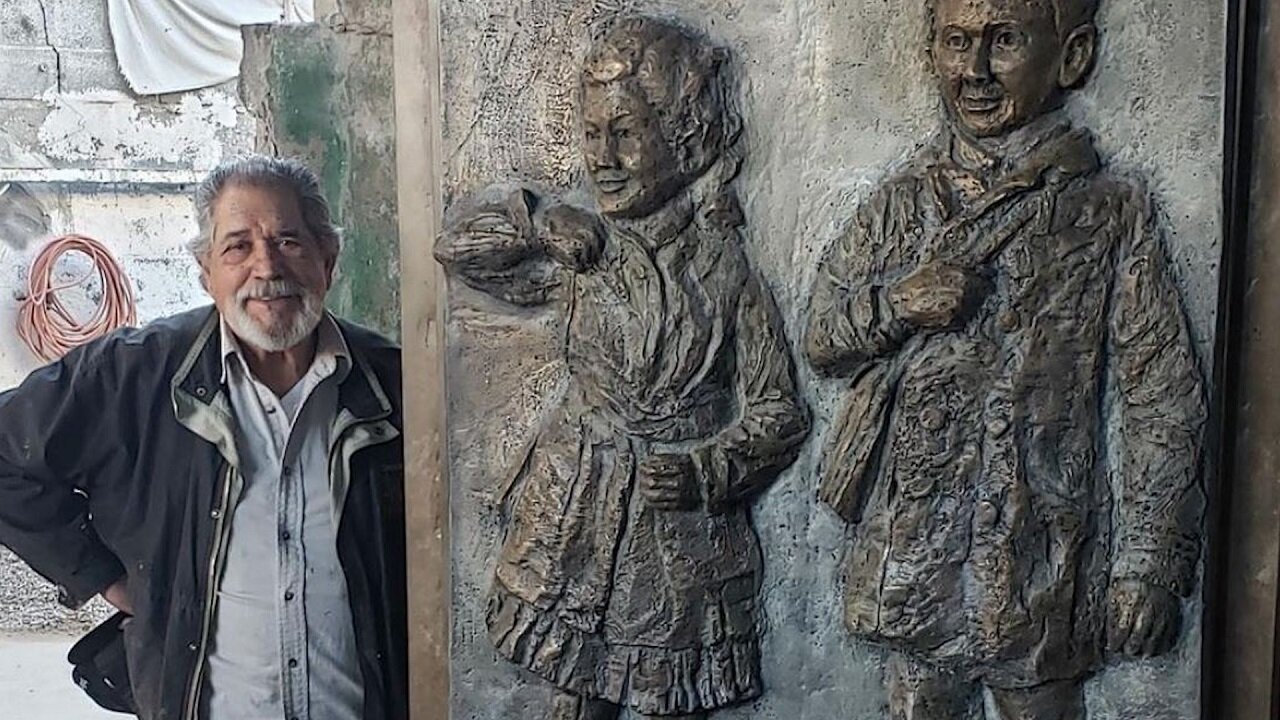Judge Martín A. Gonzales announces retirement and successor

ALAMOSA, Colo. — His docket is filled these days, as the weeks until retirement whittle down.
As the first Hispano 12th Judicial District Court Judge, Martín A. Gonzales brought first-hand knowledge of local communities to 15 years of decision making. He retires from the bench April 1.
A lifelong resident and fifth generation to the area, Judge Gonzales spent his career serving the six counties of southern Colorado’s San Luis Valley.
Judge Gonzales was born in Alamosa, at the only area hospital at the time, in 1952. He was raised on a farm outside the small town of Capulin. His family were sheep ranchers and grew alfalfa and barley for Coors brewing. “It was the typical sort of stuff that was grown then — and still is,” Gonzales said.
“My dad had me out there in the fields driving the pickup and the truck, basically standing on the seat,” he said. “It does create a fundamental understanding that your worth in large part is dependent on your ability and willingness to work — and that it is honorable to work.”
Growing up, his father was Water Commissioner on the Alamosa and La Jara River systems, raising and lowering head gates to accommodate some of the earliest adjudicated water rights in the state. He came home daily with stories about the community and its water, Gonzales said.
“Water is the blood of agriculture, particularly in this area. My dad had to maneuver the politics and the conflicts that engendered as a normal course of doing business,” he said. “I remember him having to mediate between neighbors who were arguing over water, and having to make decisions about who was right and who was wrong. It was kind of like an ad hoc arbitration process,” Gonzales said in an interview with Rocky Mountain PBS.

Watching his father weigh each scenario, Gonzales learned “any time you're in a position to have to make the decision between people, it's critically important to honestly listen to both sides. I would watch my dad seemingly ad nauseam listen to people’s grievances. Sometimes he would make the decision right away. Sometimes he'd come back a day or two later and say, ‘This is what we need to do.’”
Still, Judge Gonzales’ spark to pursue law didn’t come from watching his father’s judicious allocations of water. If anything, Gonzales said he learned he definitely did not want to be a Water Commissioner.
It was when he got into a car accident leaving his High School parking lot that Gonzalez caught the courtroom bug.
“My dad asked what happened. I said it wasn’t my fault — but the ticket said that it was,” he said. “We didn't hire an attorney. My dad just threw me into the courtroom and said, ‘Argue your case.’ And I did. And it came out to my liking. And I started thinking, Hmm, this is maybe something I want to do.”
Gonzales became involved in the farm worker’s movement, and was a student activist in college, he said.
“The San Luis Valley was the venue of a large number of struggles,” he said, citing redlining and farm worker’s strikes.
When his high school counselor tried to convince him to abandon his plan to go to college and join the Army, Gonzales had to fight to get his college application pushed through — and said he wasn’t the only one.
“Many of us started recognizing that it was important to become proponents for Hispanic culture and the culture that we grew up in,” Gonzales said. “We started having discussions, and the farm worker movement started. The anti-war movement was gaining force as well as the Chicano movement. All those influences flowed and threaded their way through my life.”

“I'm a child of the sixties. I thought by going to law school, I was going change the world. And the world probably changed me more than I changed it,” he said.
Gonzales attended the University of Colorado, graduating in 1975, and obtained his JD from the University of Colorado Law School in 1978.
Before becoming a judge, he served as Conejos County Attorney from 1989 to 2001 and Costilla County Attorney from 1996 to 2001. He was Juvenile Magistrate for the 12th Judicial District from 1997 until his appointment as Alamosa County Judge in 2001.
Gonzales specialized in San Luis Valley child welfare prosecutions, with cases often reflective of larger social problems. Areas where communities experienced a gap in services included economic opportunity, education, and child care.
“We don't have a child care system, and as a result, we have families that are being torn apart by neglect, because they have to work,” he said.
“The system ”can work for the people,” he said, “though it takes a great deal of education, a great deal of organization, and a great deal of time. Hispanics in this district are still in the struggle,” he acknowledged. “Discrimination still exists. Certainly a lot of progress has been made. I certainly think there's a lot of progress still to be made. It’s a work in progress.”
Judge Gonzales’ list of community involvements includes serving on the board of directors for the San Luis Valley Community Corrections Board, the Colorado Hispanic Bar Association, and the San Luis Valley Comprehensive Mental Health Center, and as a member of the 12th Judicial Juvenile services committee.
In the latter role, Gonzales said he witnessed a lack of personal mentorship of youth in an age of digital connection. “I think mentorship is important,” he said. “I learned more from hanging around people than I ever did from books.”
He often gave advice working in the juvenile court system to “find somebody that you admire and go talk to them and, or find somebody in a job that you think you might be interested in,” he said. “A lot of times they will take great pains to help you.”
Throughout his whole career, Gonzales said what he is most proud of is “being able to prove to the naysayers that somebody of my background and my culture can, in fact, succeed. I was the first Hispanic District Court judge appointed in this district.”
On some level it's gotten better, he said, “but still, until you prove yourself, the presumption, I think, is you can't do it.”
Current Conejos County Judge Kimberly Cortez-Rodriguez of La Jara will be his replacement, Gonzales said, saying he did weigh in on the decision along with many others. He’s glad to see a local Judge take the position.
“I'm a strong believer that a judge should reflect the community in which the judge sits,” he said. “For myself, for instance, I have a hard time imagining I would understand Denver culture, even the Denver Hispanic culture. It's distinct and unique from the culture that I grew up in and understand and live in. I think there's something to be said for having a fundamental understanding of the people that you're working with.”
Historically, much has been lost in translation, Gonzales said, and loss of lands, systems, and way of life took place as transformations occurred post-Treaty of Guadalupe Hidalgo.
Today, representation is still an issue, he said. “The San Luis Valley is in many respects an afterthought with many people in the Front Range,” said Gonzales. “The struggle locally in many respects is tied to the economics. Here, the Depression went on for a long time, and in some respects is still is going on. Those breakthroughs of economics hasn't occurred for a large number of our population. The poverty rate is fairly high. We have a couple of the poorest counties in the state and, in turn, are a couple of the poorest counties in the country. Those all create problems and struggles.”
Understanding local communities affects how he communicates, Judge Gonzales said. “It helps me express the nuances of the law and know how to effectively communicate while making a decision.”

Post-retirement, Gonzales is most looking forward to reading for pleasure — he currently reads four to five hours a day for work. He can’t wait to go fishing, spend time in the mountains, and continue to show up for his two favorite groups — the Maestas Case Committee, which he chairs, and as a member of the local S.P.M.D.T.U.
“Over the course of time, I've become a more and more appreciative of tradition and history,” he said. “I think things like the Maestas Case and S.P.M.D.T.U. are things to be proud of, and things to be nourished — and hopefully revived a little bit.”
From 1912 to 1914, Mexican and Spanish American communities rallied the Alamosa School District to allow students to attend the school nearest them — regardless of their last name. The long-forgotten case of Francisco Maestas v. Superintendent George H. Shone and the Board of Education was unearthed by Gonzales and a team of researches and academics, and is being brought to light today by a dedicated Committee as a herald of school desegregation in the Southwest.
In March, the Maestas Case victory celebrates its 108th anniversary as a landmark decision in Colorado desegregation. A commemorative bronze statue is set to be placed in Denver on the first floor of the Capitol.

Educating the state about one of its earliest fights against racial segregation is a personal plight — yet it’s not everything, Gonzales recognizes. “I put it in the same context that I believe the Hispanics at that time put it,” he said. “It was just one of the battles. It wasn’t the war. It wasn’t the end of the struggle. It was just one more piece in the puzzle.”
Seeing strides in his lifetime, still, “the struggle continues, and probably will continue for some time longer,” Gonzales said. “This society is a complex society. And that’s why I say, it’s always a work in progress.”
Kate Perdoni is a multimedia journalist for Rocky Mountain PBS and can be reached at kateperdoni@rmpbs.org.